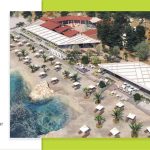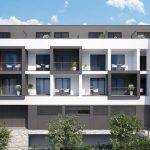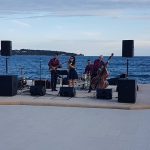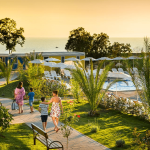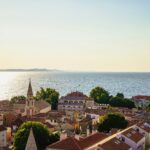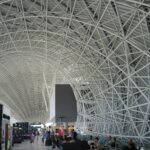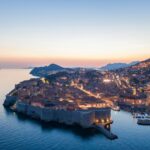Tourism trends are changing, as destinations are forced to adapt to new market conditions and the advancement of technology. Whisper it quietly, but a little corner of Istria at the Aminess Hotels and Campsites in Novigrad, is grasping that concept more than its competitors. An interview on July 21, 2016 with Zeljka Babic, the architect of the first edutainment centre in Croatian tourism, the Mirami Family Village at Aminess Camp Mareda.
The concept sounded intriguiging, but quite how successful it would be with my two swimaholic kids, I was not so sure, but I had five days to find out.
One of the more innovative introductions in 2016 is taking place in Novigrad in Istria, where Aminess Hotels and Campsites have introduced a new feature at their four-star Camp Mareda, the first edutainment centre in Croatian tourism, otherwise known as Mirami Family Village.
Fifty surprisingly spacious and well-equipped bungalows – our 35m2 had three bedrooms, two bathrooms and unexpected amenities such as a safe, baby bath and hairdryer – are set aside in an enclosed area with two family pools, surrounded in nature and dominated by the complex’s eight-legged superhero, Mirami the octopus. My kids jumped at the chance to visit Mirami – it sounded fun, although I knew that their ulterior motives were swimming in the sea and visiting the Istralandia aquapark. Aged 7 and 9, I expected them to pay scant attention to the activities on offer at Mirami.
How wrong I was… And how surprised that the Adriatic was not visited at all, although Istralandia proved to be an enormous hit, one more bow in Novigrad’s attraction for families. Read about the visit here.
The Mirami Family Village was a total hit, and I got to know a little more of the concept of edutainment – combining education with edutainment, something initiated by Disney – as well as sitting with the founder and coordinator of the first edutainment project in Croatian tourism, Zeljka Babic.
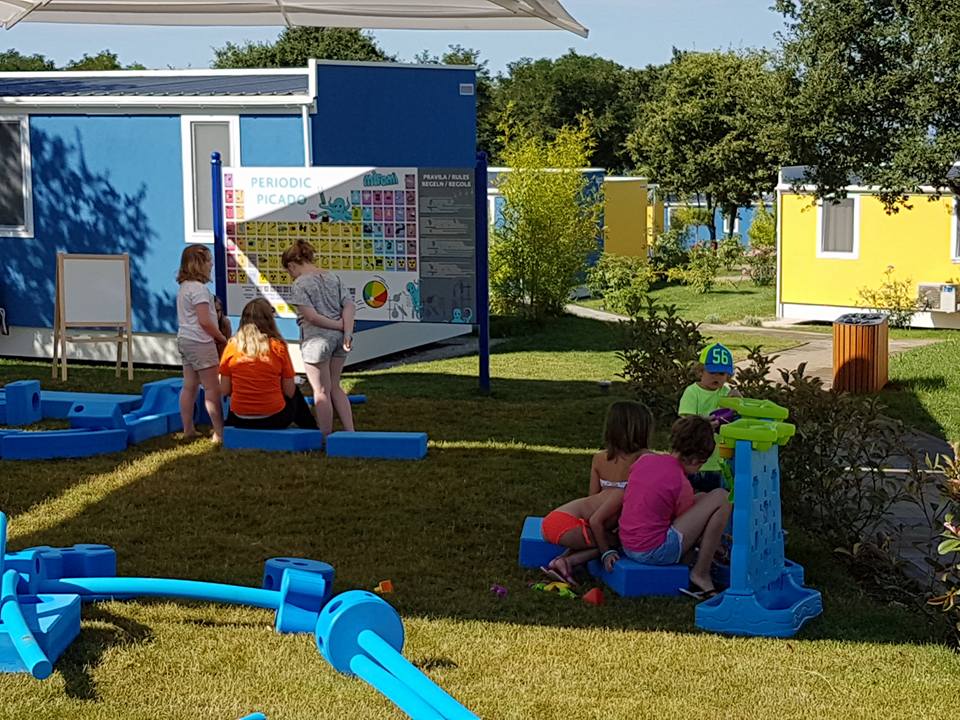
Firstly, tell us a little about you, and how you got into the edutainment business.
I studied at the University of Philosophy and Literature, but very soon I became very interested with the connection of the new media with literature, culture and the digital age.
After a while I started working with my sister, who is now a PhD of Physics, and we decided that science needs a little bit of beauty and creativity to be converted into something that children will love.
In the meantime I had a son who is a natural-born engineer and programmer, and we realised that Zagreb was missing a science edutainment option, so four years ago, we decided to start one. And I started a workshop which was soon recognised as a socially useful concept. We attracted interest from business angels and we got a lot of help from them to develop our business model.
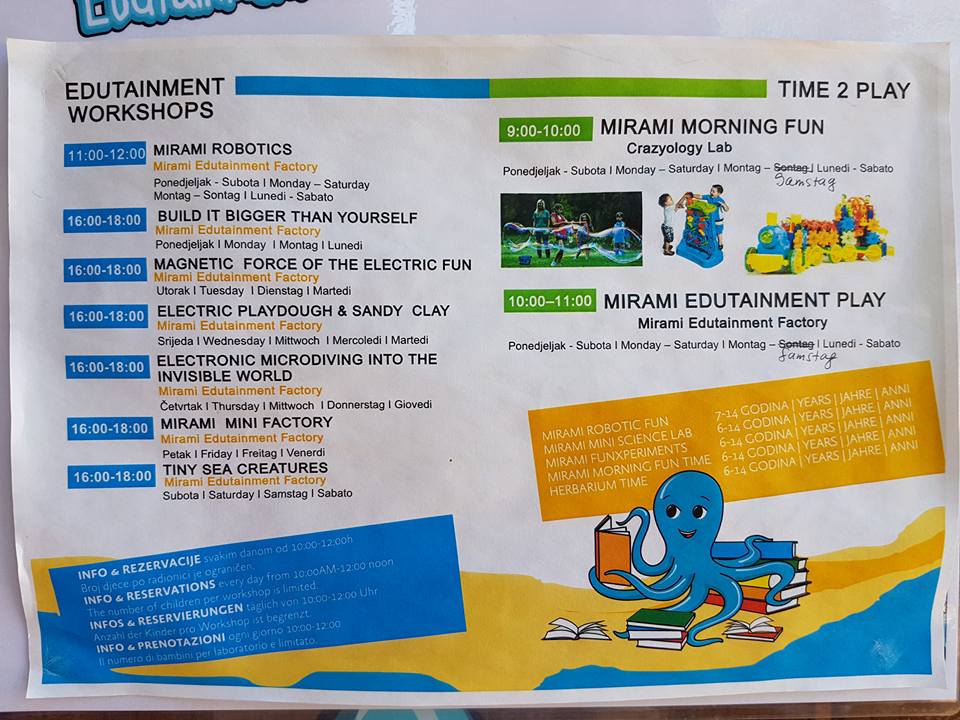
Sadly in Croatia, there is no official programme of support for very gifted children. You probably know of the private initiative of Nenad Bakic with robots in schools which is really great, and so we found a way to create a company focused on entertainment and education, which had two sides – one side was an educational programme for kindergartens and kids, some kind of education, and we had engineers, PhDs and all kinds of experts; and the second side was financial, so that we could pay for things, so we organised birthday parties, and as the country does not really invest in gifted children, my idea was something call advanced children event management, which included robots and science for shopping malls and various events. For me, although this was entertainment as well, it was an opportunity for kids whose parents perhaps did not have money to take part. The company grew and after a while I decided to sell it to an international corporation.
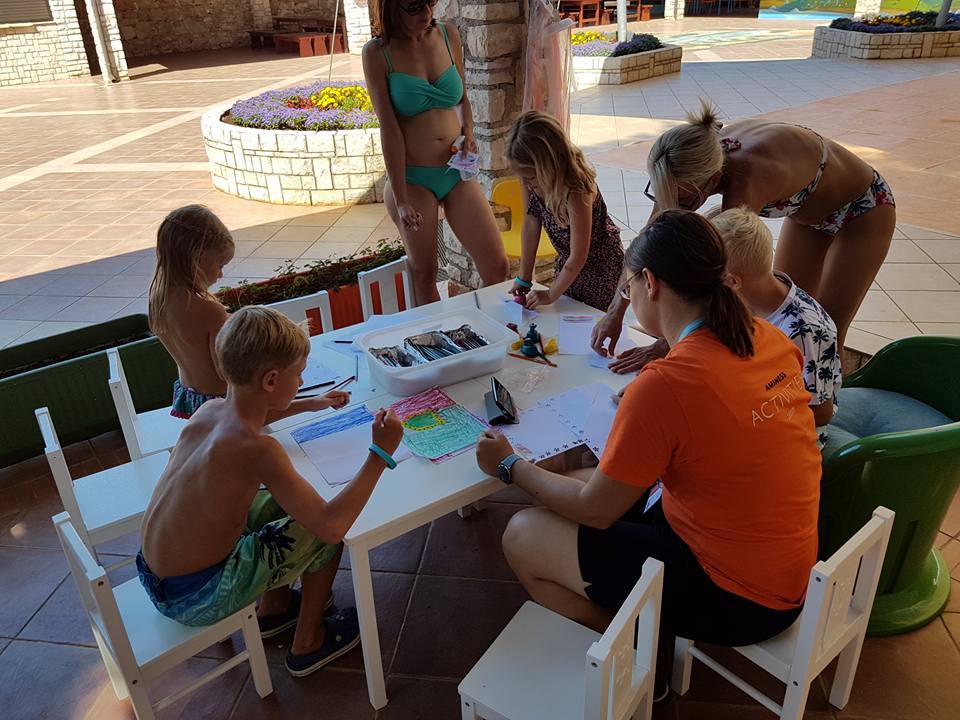
During the development phase of all this, we made a picture book for children about chemistry, and we had a very entertaining chemistry show for kids, which was about a crazy scientist and a dad who did not understand why kids love science so much. During all this, I came to realise that tourism in Croatia is lacking something like this, so a few years ago, I made a concept of edutainment for a hotel.
I presented the concept to someone from a world famous consulting company, but they told me it would never work in tourism as it was too expensive, but I refused to give up, and it was somewhat ironic that the same person who said it would not work put me in touch with representatives of Lagune Novgrad (now Aminess), as they were looking for a similar concept.
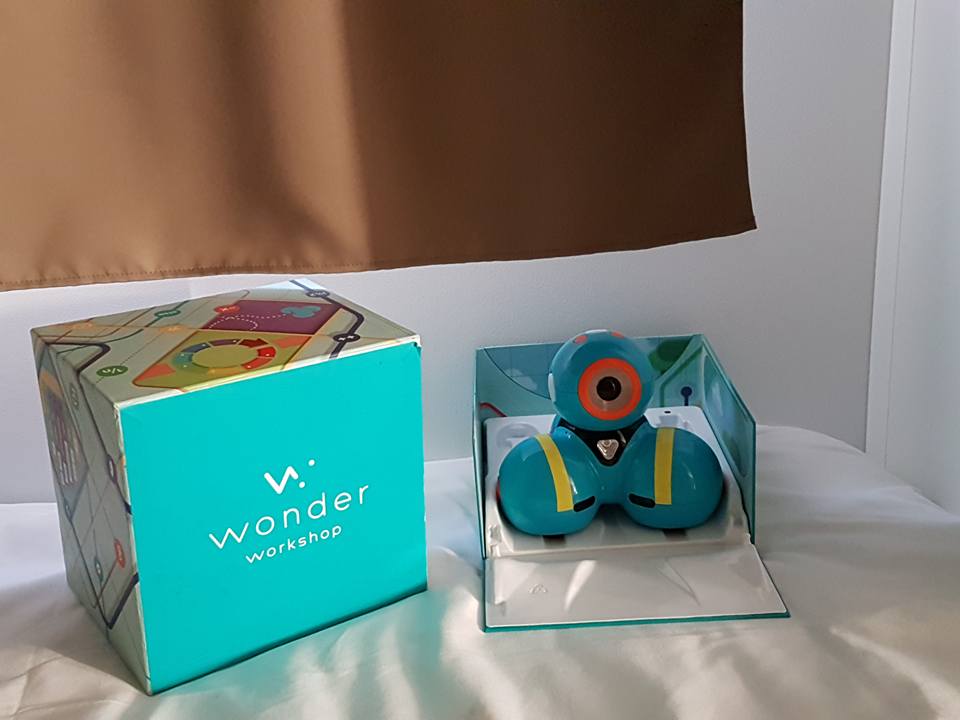
(Meet Ada, the new temporary member of the family)
It was a great opportunity, and I cannot express how grateful I am, because this company not only showed interest, but they really allowed me and my team the freedom to allow this to develop and work to its full capacity. They did not interfere at all, and so now what we are building is a new and advanced version of what we used to play as kids. We are helping them to create role plays of their world.
For example, as kids we used to role play as people selling things. Well, as you can see the way the world is moving, soon, very few people will be selling things, and robots will be doing most of the work. Kids see us on computers and phones all the time, and so we want to provide children with entertaining and useful ways of using technology.
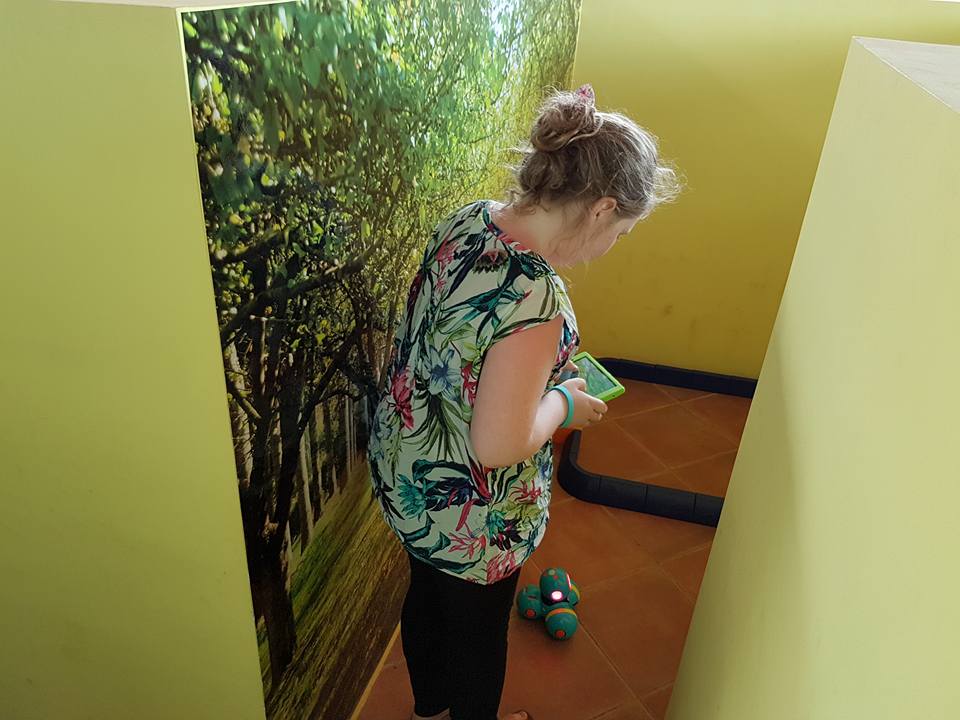
(Taking Ada for a walk through the labyrinth)
How do you feel about technology and childhood? I see my own daughters increasingly fascinated with technology and not playing in nature as much as we did, for example. They are already better than me at some aspects of technology. This is the way the world is going, childhood is changing forever, and the natural aspect of child upbringing is very hard to protect these days.
There are two aspects of this. I was raised by my grandfather who was a teacher, and a very forward-thinking one at that. He always encouraged me to find my own way, and as a child, I was always interested in new things, so I never had that fear of change and the future in the first place.
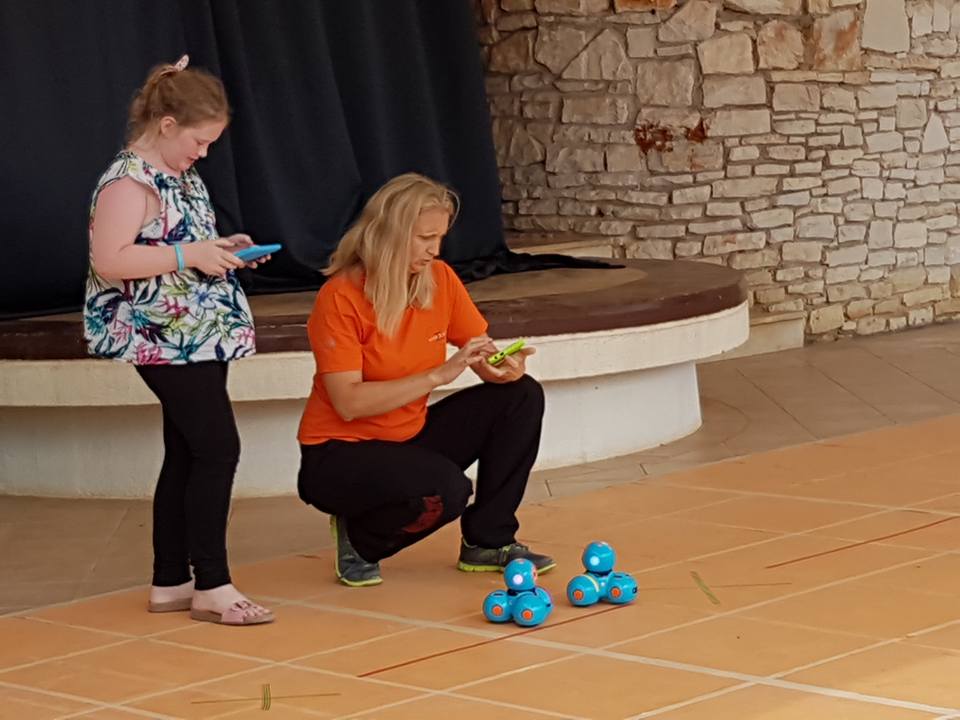
(Zeljka Babic in familiar edutaining mode, capturing the attention of a child in a way this parent can only dream of)
Having said that, when I started getting into all this, I was faced with new situations – blogs, new forms of media – and somehow I decided to embrace it and not be afraid of it. As a parent and as a teacher, we are developing a curriculum, but we have no idea what this curriculum will do or what role it will play. It is a little scary. I will soon start a series on YouTube on digital parenting. The important thing is that we have to stay ahead of our children. Knowledge is not so important as the character of the child when learning, and it is important to focus on the fact that it is not the media which is important, but what we are doing with that media. But I still have a little fear, but I try and rationalise it.
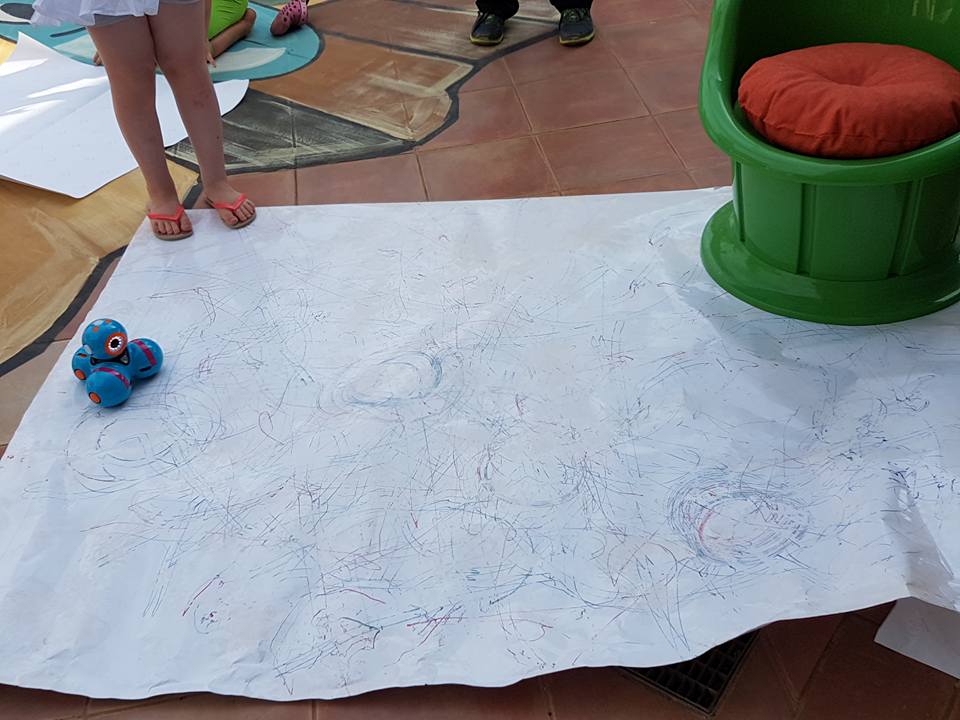
(An interesting excercise in art. Painting by robot, with the robot equipped to paint according to the child’s instructions)
Can you tell us a little about the specific programme you have here at the Mirami Family Village at Aminess Novigrad? It is very focused and very diverse – can you introduce it to our readers?
What I had in mind when creating this programme and talking with the team from Aminess – and I must say how amazing it was that we clicked almost instantly – is that we know kids love certain things. One is nature and searching for things, things such as shells, and looking through a miroscope will never be an outdated pasttime. So one programe is biology through a series of workshops. We show kids for example how things from nature look under the microscope. We take things which we know are attractive to kids and we take some physics equipment, and what I would like is for kids to spend a long time in one spot in nature, either in the water or in the woods, just seeing what there is around them.
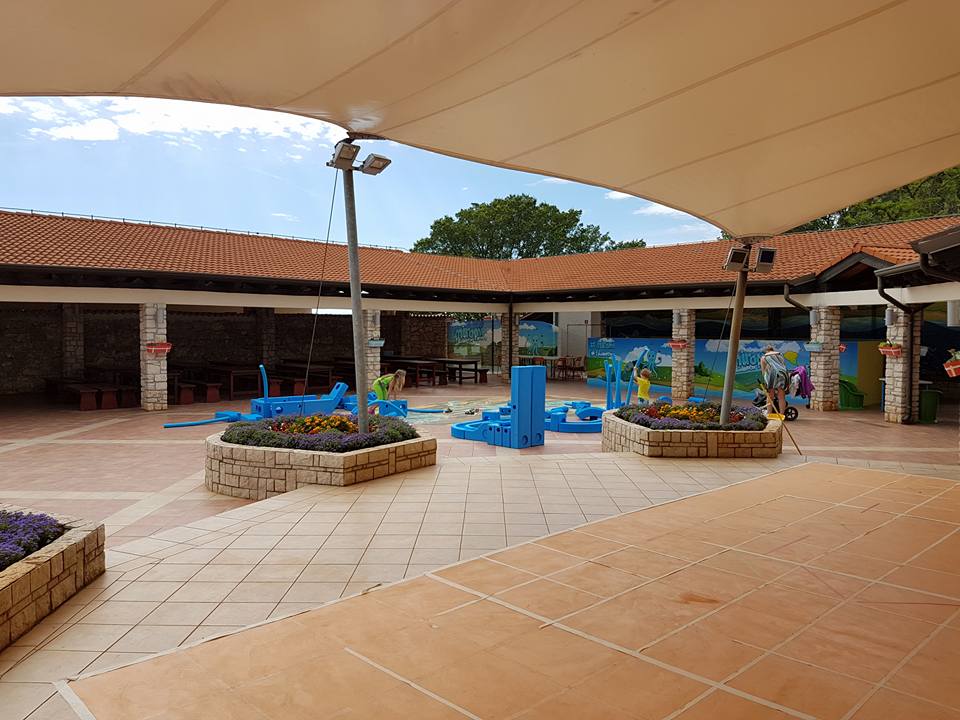
(The Mirami Fun Factory – and it WAS fun – a wonderful and versatile open space)
The second programme is chemistry, and this is a very popular one, as kids love explosions and experiments. Kids love change, and much change is due to chemistry. The third programme is experiments, kind of physics and mechanics, using properties of light and photo-sensitive paper, building and using other aspects of physics. And the fourth is robots, a robotics programme which uses the technology we have now. We started to work with robots even before President Obama said that robots in education were an essential part of the new age of digital learning. These robots function on several levels, from simple toys to more sophisticated learning devices.
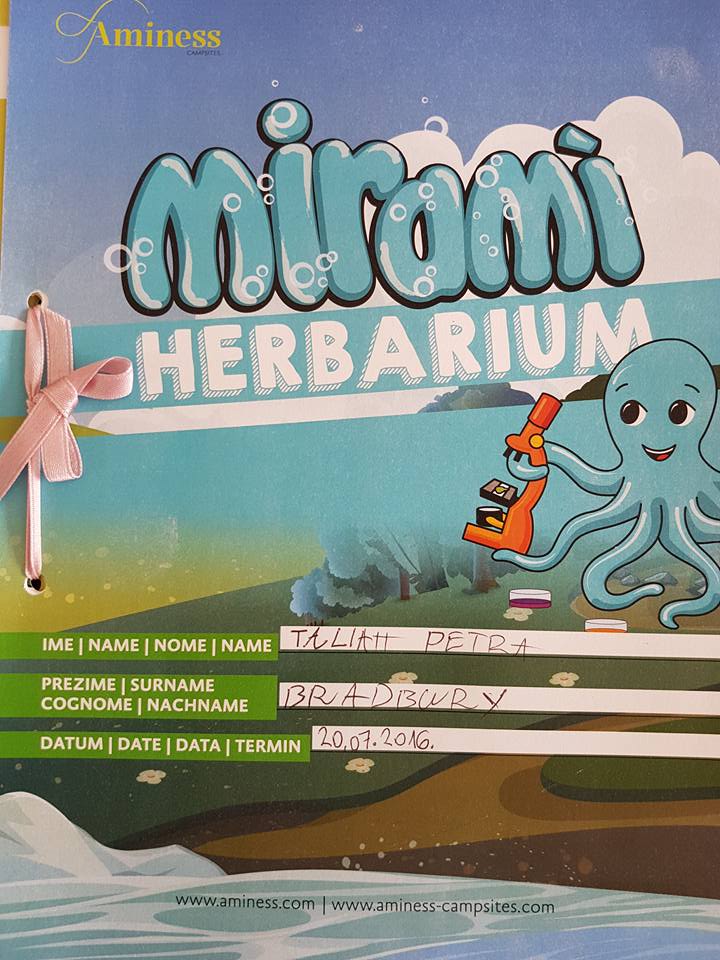
(Mirami nature art books)
On top of all this we have our open-plan spaces, with creative and fun things such as large building blocks and a soap bubble factory, chances for kids to experiment and express themselves. The building blocks are quite unique, as it is left to the children to give meaning to the shapes they are presented with.
And this is unique in Croatian tourism?
This is the first project of this kind in Croatian tourism. I believe that Croatia should exploit more of its Tesla heritage and get in touch more with its Tesla side, as Tesla was so ahead of his time and we should not forget that heritage and tradition in our animation. I see no reason why Croatia with its mild climate and great weather could not expand these types of programmes significantly.
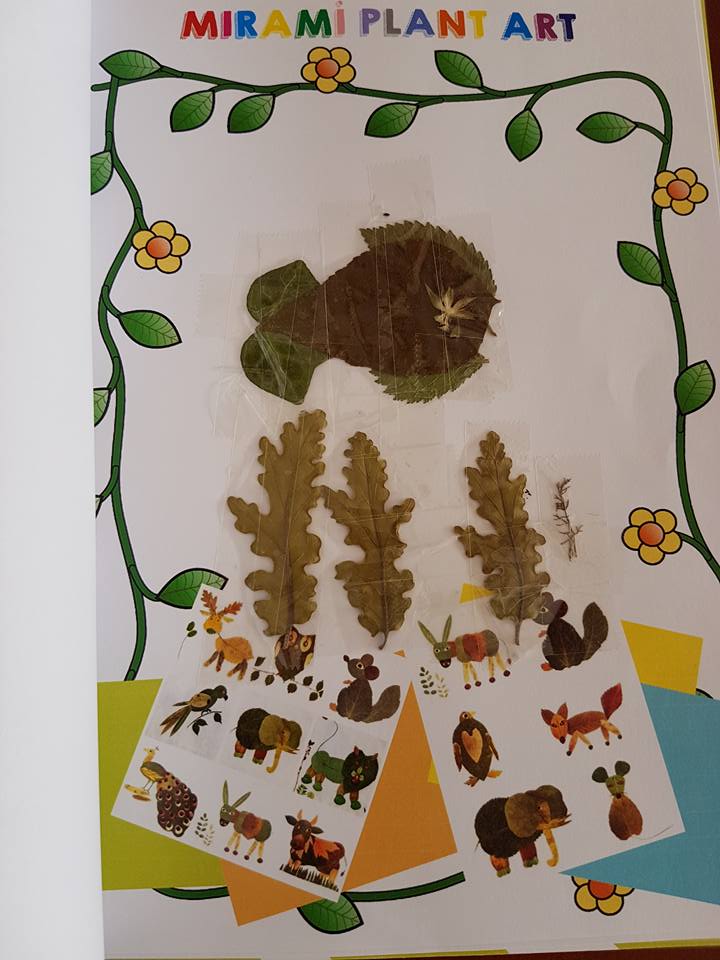
(Where creativity working with nature is encouraged)
So you think there is potential here to grow this into a longer season tourism opportunity for children?
I think so. There is a growing trend and pressing need to change the way of the schooling system, and travelling is one such way. Travel provides a change of setting and a change of dynamics, and I would like to see Croatia as place that children, as well as teachers, go on such programmes. If you have a teacher who is over 40 who has to learn something new, it is better to offer them something sweet and nice, like a working holiday in Croatia.
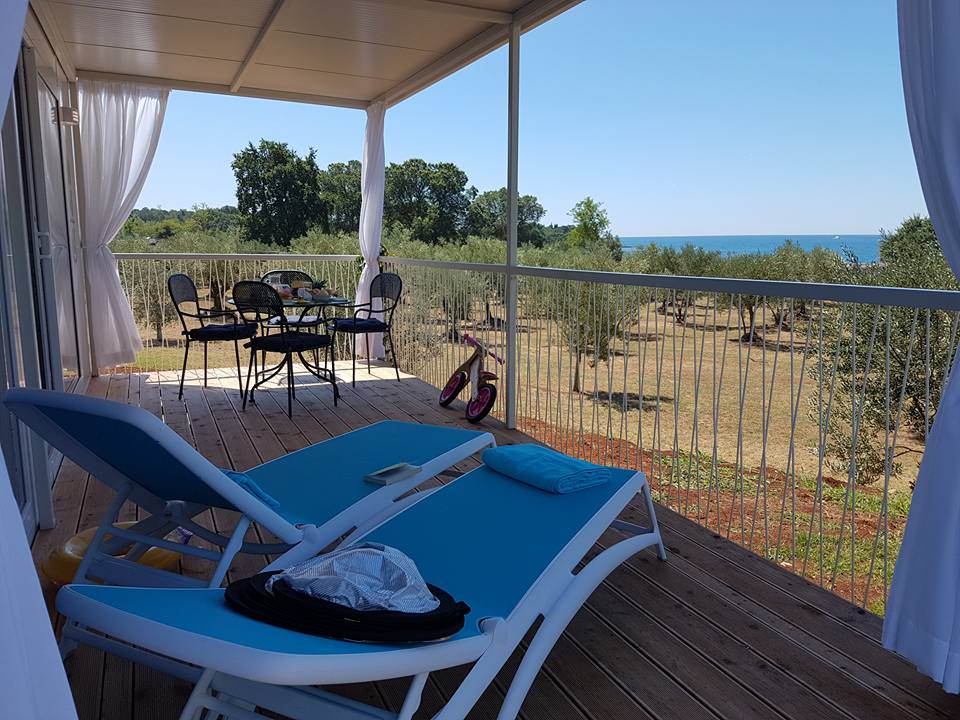
How much input did you have into the development of the Mirami Family Village? And what is the maximum number of kids you can have at one time?
My duty was to develop the concept of areas, the name and programmes. In our free play sessions, there are unlimited numbers, but in our workshops, they are meant for a maximum of 12 kids at one time to maximise attention paid to them.

A fascinating few days for parent and child alike, and what made the experience all the more pleasant was the simple yet comfortable arrangement of the Mirami Family Village. Our bungalow could have slept seven, but as there were only three of us, the kids got their own room for the first time ever, but all under the watchful eye of educating Mirami the Edutative Octopus.
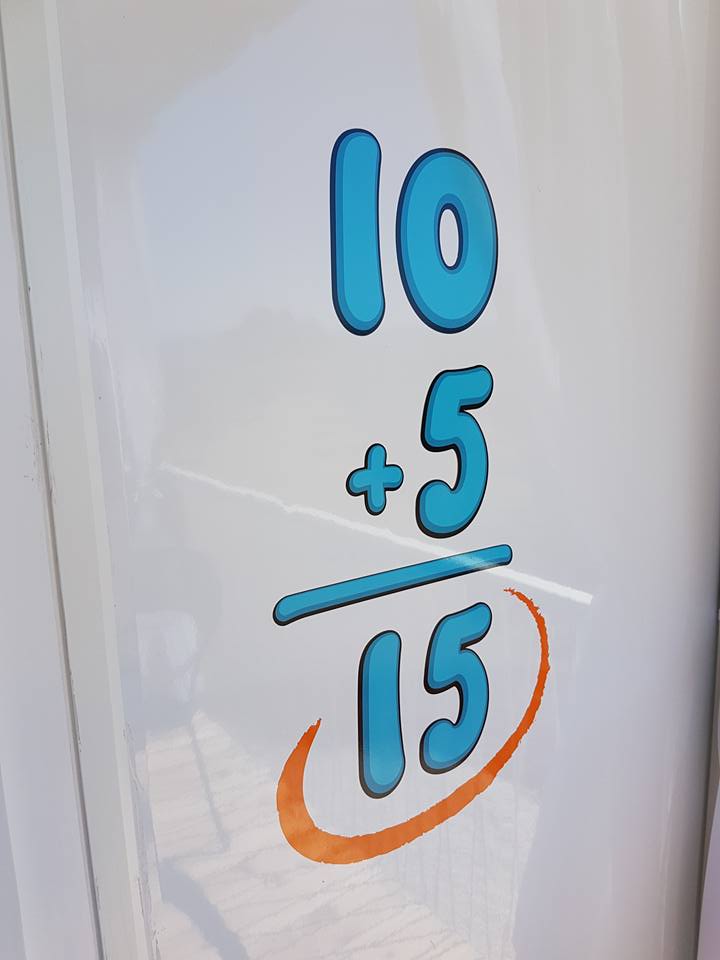
No education opportuity was lost, and even the bungalow numbers served an educational purpose. 10 plus 5 is bungalow 15, 12 times 4 is 48, and so on. The atmosphere was relaxed but with a mood of quiet creativity and learning, something I have not seen in a holiday resort in Croatia before.

And, after a hard days’ entertainment and education, there is nothing better to sit on the bungalow terrace and reflect. Perhaps take a dip in the family pools which brought together young kids of all ages and nationalities, perhaps to ponder what the next day would bring with Mirami the Superhero.
A highly recommended experience, and one which is not atypical of the recently rebranded Aminess Hotels and Campsites. With one of the youngest management teams in Croatian hospitality, their innovation and freshness of ideas is already transforming itself in terms of significantly increased business, as their recently released rebranding video below shows.
To learn more about Mirami Family Village and its edutainment options, visit the Aminess official website.

